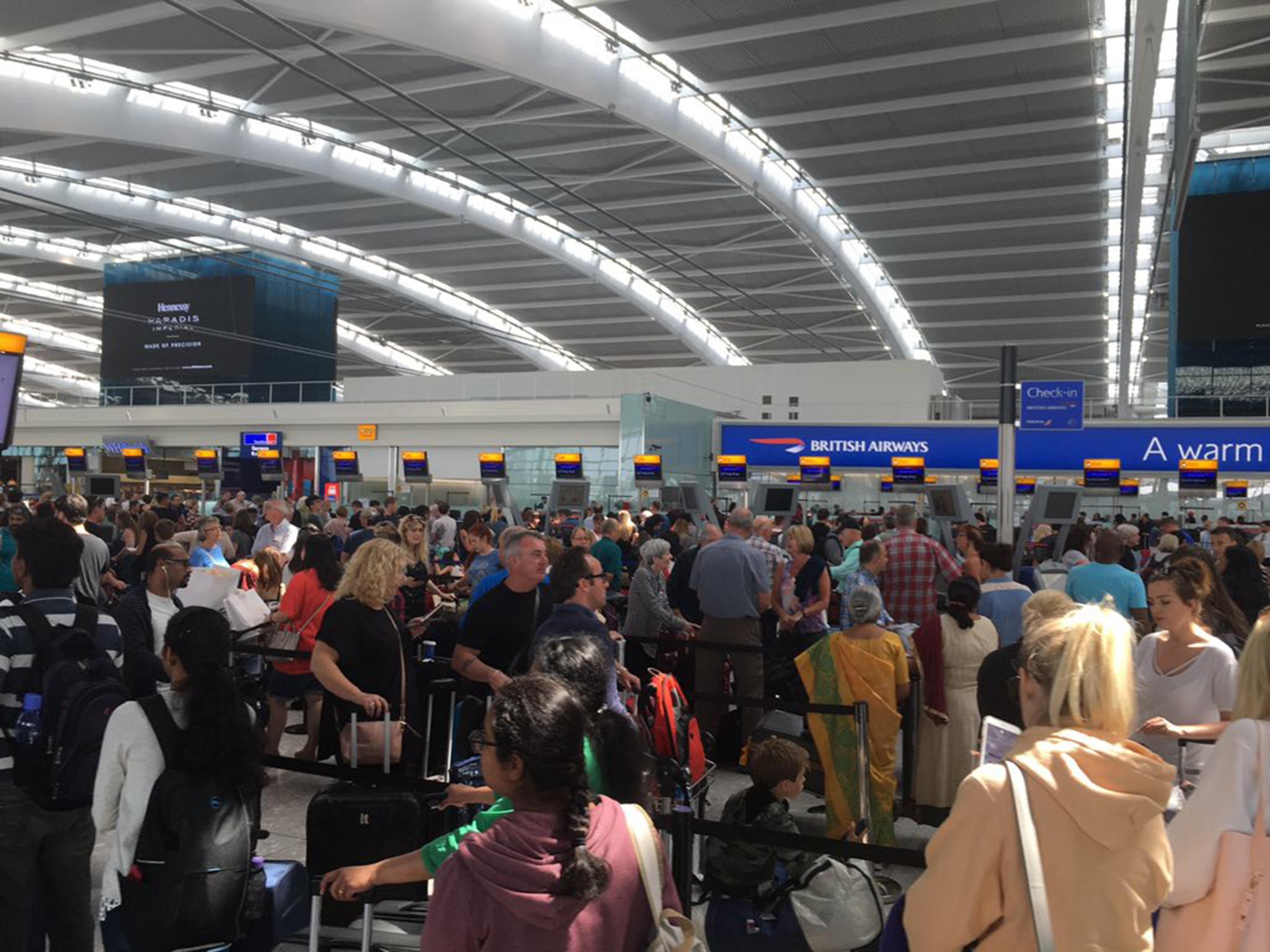British Airways chaos should force us to re-evaluate our faith in technology
Analysis: Every aspect of an airline’s operation is tethered to its mothership: the IT system. So how did British Airways get sent into such a meltdown?

Your support helps us to tell the story
From reproductive rights to climate change to Big Tech, The Independent is on the ground when the story is developing. Whether it's investigating the financials of Elon Musk's pro-Trump PAC or producing our latest documentary, 'The A Word', which shines a light on the American women fighting for reproductive rights, we know how important it is to parse out the facts from the messaging.
At such a critical moment in US history, we need reporters on the ground. Your donation allows us to keep sending journalists to speak to both sides of the story.
The Independent is trusted by Americans across the entire political spectrum. And unlike many other quality news outlets, we choose not to lock Americans out of our reporting and analysis with paywalls. We believe quality journalism should be available to everyone, paid for by those who can afford it.
Your support makes all the difference.Long before Tim Berners-Lee started connecting the planet, the airlines had devised their own prototype of the World Wide Web.
The Société Internationale de Télécommunications Aéronautiques (Sita) was set up in Brussels in 1949. International airlines needed a dedicated data network to carry everything from details of lost bags to urgent alerts to flight crews.
Sita allows any subscriber to contact anyone else on the network anywhere on the planet, with a few strokes of the keyboard and without spending a fortune. Sounds familiar?
More than any other industry aviation involves vast amounts of global data communication: airlines are digital organisations that happen to fly planes.
Normally the information flows seamlessly. The captain flying from Heathrow to Hong Kong assesses the weather along the route, while flight plans are transmitted to air traffic controllers and technical faults are logged so that engineers are ready to deal with them after landing. Latterly, governments demand the background of everyone on board before (in the case of the US) a flight is allowed to take off.
Bits of the operation can fall over without everything being grounded; when Gatwick’s baggage system broke early on Friday morning, EasyJet coped by dispatching planes full of passengers but no luggage. But the meltdown at British Airways was a different order of magnitude.
The technology a passenger sees – buying a flight and checking in online, scanning a boarding pass to get into the security search area and onto the plane – is merely the tip of a very large iceberg.
Every aspect of an airline’s operation, from crew rosters to details of pernickety passengers’ special meals, is tethered to the mothership: the airline’s IT system.
All the BA aircraft that were airborne at the time of the system failure safely completed their journeys, because plenty of analogue resilience is built in to the aviation’s fundamentals of safety.
The safe default setting for aircrafts already on the ground is to keep them there until some essential questions can be answered.
How much fuel? Who’s on board? Has the baggage been reconciled with the passenger’s manifest? Has the weight-and-balance computation been signed off?
All those issues have manual analogue solutions involving pens and paper, but time is not a friend of an airline based at the two most overstretched airports in the world – Heathrow and Gatwick – and which handles 80 passengers per minute.
British Airways has some previous with digital disasters. At the route of the botched opening of Heathrow’s Terminal 5 in 2008 was an IT failure. The next couple of days will prove stressful as BA seeks to get passengers on their way.
Costs in terms of lost ticket revenue and care for disrupted passengers are already running into millions even before the compensation trains start rolling in.
Yet the consequences would have been much worse had the failure happened 24 hours earlier. Saturday and Sunday are quiet days for BA while Friday at the start of a bank holiday weekend is extremely busy.
But still there are tens of thousands of passengers not where they need to be this weekend, as travellers’ faith in technology is tested once again.
Join our commenting forum
Join thought-provoking conversations, follow other Independent readers and see their replies
Comments